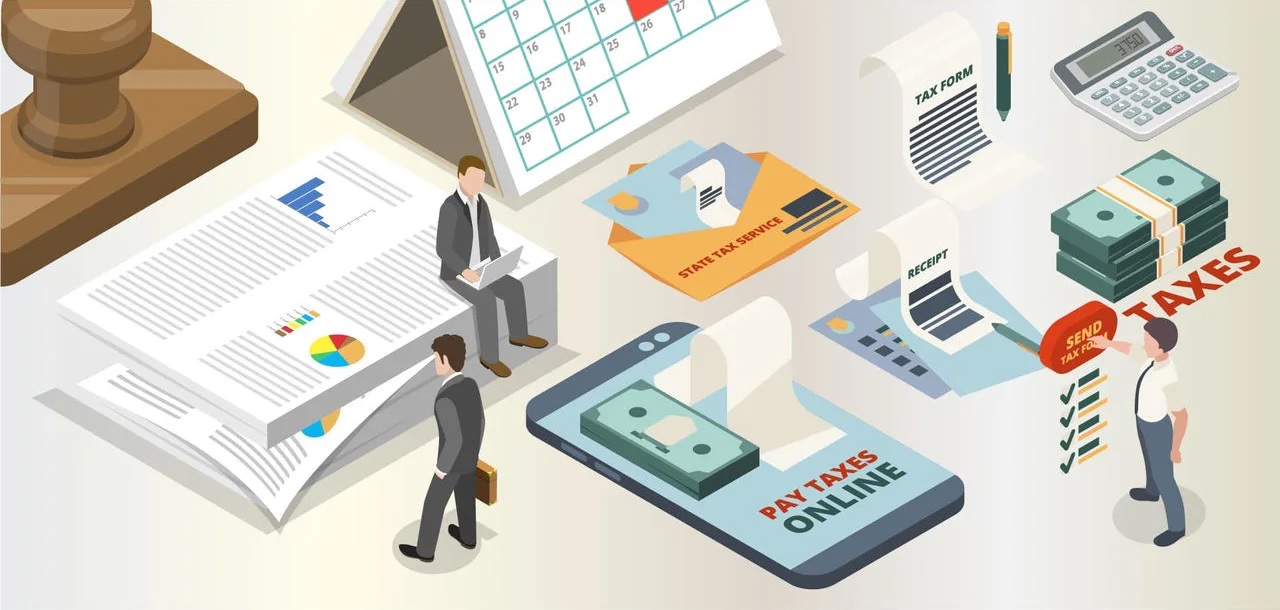Customs advice for first-time shippers
 Shipping abroad for the first time? Have you given any thought to ensuring your goods are cleared through customs, without a hitch? After all, any delay means a delay for your customers, too. As this article explains, it’s essential to be prepared.
Shipping abroad for the first time? Have you given any thought to ensuring your goods are cleared through customs, without a hitch? After all, any delay means a delay for your customers, too. As this article explains, it’s essential to be prepared.Customs is tricky territory. Shippers play a fundamental role to ensure a smooth Customs Clearance, without errors or delays. At DHL, our day-to-day job involves supporting customers with Customs issues, so we’ll share some insights into the challenges faced by first-time shippers and explain what you really need to get right – and how to do so.
The two main challenges for first-time shippers
Customs Duties and Taxes
The first challenge can be summed up in one word: costs. Some first-time shippers don’t realize they have to pay Import and Export Customs Duties and Taxes to government authorities. They assume that once they’ve paid the shipping company, that’s it – all done. Unfortunately, that’s not the case. These extra costs have nothing to do with your shipping provider, but are set by the government authorities of the country you’re shipping to. Knowing these costs upfront will help your business stay on budget.
 Information & Documentation
Information & Documentation
With the rise of e-commerce, Customs authorities are steering away from paper-based/’red tape’ processes, and moving towards a fully data-driven environment to enable efficient and risk-based clearance processes.
Therefore, it’s essential that shippers provide complete and accurate information when preparing their shipments – with special attention given to the Commercial Invoice information.
 What happens if you provide incorrect information or documentation?
What happens if you provide incorrect information or documentation?
If you, as the shipper, don’t provide all the right information and documents, or give incomplete or incorrect data on Commercial Invoices or Waybills, the best case is that your shipping provider will notice the missing data and pause your shipment in order to alert you. Obviously, this delays your delivery. On the other hand, if the shipping company doesn’t spot your missing information, your shipment may be held by Customs authorities until all the correct information and documentation are provided. Unfortunately, you may be charged for the storage until the Customs Clearance process is completed. Either way, your end customer (the receiver) will experience delays to receiving their goods, will possibly face additional delivery costs, and will feel frustrated both with you and the shipping company. And that’s something we’d all like to avoid!
The most important information is the most basic
Particularly important is to give correct, complete shipper and importer (i.e., your customer) information on the Commercial Invoice. The importer information, including contact details such as their full name, address, cell phone number and email address, is vital. If there is a hold up in the destination country, the shipping company (or even Customs authorities) may need to be able to contact the importer. If they can’t easily reach the importer, the import Customs Clearance of the goods may be delayed, or the shipment may even be returned to you.Always give a proper Goods Description
An accurate description on the Commercial Invoice of the exact contents of your shipment – the Goods Description – is also very important to ensure a smooth Customs Clearance process. For one thing, the Customs authorities will use it to analyze whether your shipment poses any type of security/safety risk, based on analytics of the shipment data. The goods description is also essential to determine other key elements, such as the Harmonized System (HS) code – which is relevant for the amount of Import Customs Duties and Taxes to be paid.When providing the Goods Description on the Commercial Invoice, you must be detailed and precise. You should indicate what the goods are, for which purpose the goods are used, and what they’re made of. For example, instead of “Apparel”, write “Women’s T-shirt made of 100% cotton”.
 HS Codes and how to find the right one
HS Codes and how to find the right one
In addition to complete and accurate Goods Descriptions, another key element is for shippers to indicate the respective Harmonized System (HS) Code on the Commercial Invoice. The HS Code determines the import Customs duty rate you’ll pay, depending on what you’re shipping, and also determines possible import restrictions, and if licenses are required. The Harmonized System (HS) code is an international standard developed by the World Customs Organization (WCO). Each import country has its own table of duty rates associated with each HS Code – and there are a lot of them!
You can search for HS codes using keywords or the code directory.
We also offer a service that allows you (the shipper) to pay for Import Customs Duties and Taxes on behalf of the importer (receiver). If you pre-select to pay all DHL charges when booking a shipment (on behalf of your customers/receivers of the goods), then DHL will outlay the Import Customs Duties and Taxes and charge them back to you (together with other Customs-related charges, if applicable). This service is known as the DHL Duty Tax Paid (DTP) Billing Service – please contact your DHL Express representative for more information.
No shipper enjoys paying Duties and Taxes, but don’t be tempted to use the wrong HS Code to get a cheaper duty rate. If you’re caught out, as well as having to pay the correct rate, you will probably be fined by Customs authorities, or even worse, penalties might be applicable.
Be transparent about the value of your shipment
Another way some shippers try to cut their Duties and Taxes costs is by undervaluing their shipment. We strongly advise against this!It’s essential that you declare on the Commercial Invoice the true value of the goods sold, with 100% transparency. Depending on the Incoterm used, Freight Charges and Insurance must be indicated too.
If Customs authorities raise a suspect of your goods being undervalued, the receiver will be contacted and requested to provide a copy of the proof of payment or receipt of the goods purchased, so authorities can compare with the declared value of the Commercial Invoice.
If undervaluation is confirmed, Customs authorities will not only charge you the correct amount of Import Customs Duties and Taxes (based on the true value of goods), but may also fine you and demand to audit your previous shipments.
Be ready to prove your identity
As well as contact details, Customs authorities are increasingly asking for various methods of identification from either the shipper or receiver, or both. For example, they could ask for a receiver’s driver’s licence number, passport number, or a copy of their identity card. Some authorities even require the receiver to install an application on their smartphones in order to verify their identity.When required, it’s recommended that you (the shipper) obtain the importer’s identification (in advance) and provide such information when preparing the shipment (if required for that specific import country). This will speed up the import clearance process at destination, by avoiding the need for the shipping company to contact the receiver to collect such information.
The authorities are clamping down on illegal importers, and you can’t really blame them. After all, if somebody is trying to ship or receive something using a fake identity, the chances are it’s illegal!
 You may be asked to register to pay VAT
You may be asked to register to pay VAT
Rules for paying customs duties and VAT in destination countries may vary.When selling online to the European Union (EU), for example, you can either opt to use DHL’s Duty Tax Paid (DTP) Billing Service, where DHL pays Import Customs VAT to authorities upon import and then charges back to you, or you can register with the European Union’s Import One Stop Shop (IOSS) system, where VAT is collected by the online seller at the moment of purchase (and the online seller then pays the Tax Authority in the EU via monthly VAT return centrally).
Our top tips for first-time cross-border shippers
Research, Research, Research
Research the import costs related to Duties and Taxes. Research what information and documentation is needed for your particular type of product. Research the import restrictions on that product in different countries. Doing this up front (‘Right 1st Time’) will not only reduce any problems in the future but will also give your end customer the best possible experience.
Commercial Invoice DATA QUALITY
Last, but not least, please ensure to provide complete and accurate Commercial Invoice information when creating your shipment, to avoid any type of delays due to missing data – including:- Shipper/Exporter and Receiver/Importer information: indicate the full name, full address (street, number, city, country, postal code) and contact details (phone number and email).
- Identification Number: if applicable, please indicate the Identification Number of the Shipper/Receiver, for example: VAT/GST Number, EORI Number, etc.
- Goods Descriptions: line-item descriptions of the commodities (using detailed, precise and plain language).
- Harmonized System (HS) Code and Country of Origin: line-item HS Code (preferably the complete Import tariff code) and Country of Origin (typically the country in which the goods have been produced or manufactured).
- Values and Currency: line-item value of the goods, and additional breakdown of the applicable cost elements (e.g., insurance, freight, packaging, etc.), with the currency in which the transaction occurred
- Weight/Unit and Quantity: indicate the gross/net weight, unit (e.g., KG) and quantity (e.g., 2 items) on line item level.
- INCOTERMS® and Place: include the INCOTERMS® and place (as required under the applicable term).
- Proof of Origin Statement: if applicable, include the Proof of Origin Statement on the Invoice to qualify for preferential Customs duty rates (also known as ‘Statement on Origin’, ‘Country of Origin Statement’, etc.)
- Reason for Export: please indicate the reason for export, e.g., permanent, gifts, etc.
- Other Requirements: it is essential that you verify if any other requirements are applicable for your goods, e.g., Export/Import Licences, other government requirements (e.g., Veterinary & Phytosanitary Laws), etc.
By giving your customers the best possible experience, you’ll encourage them to order from you again and again.
As the most international company in the world, operating in over 220 countries and territories, DHL Express can help you navigate through cross-border trade – taking the complexity out of Customs! Open an account with DHL and discuss your export potential with our commercial representatives!


